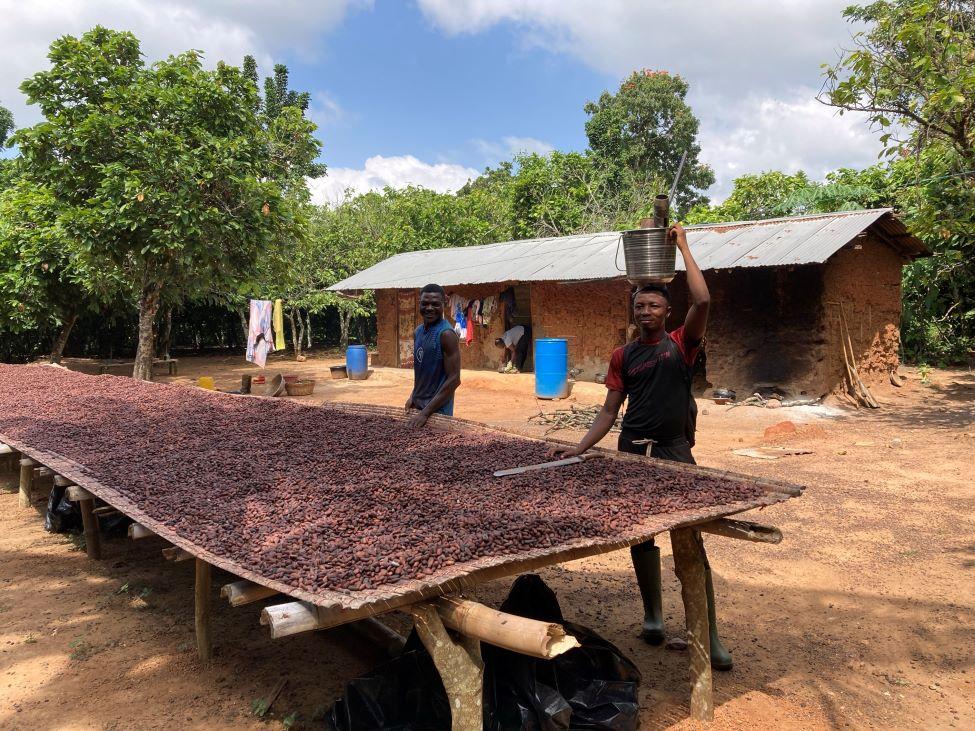Dynamic cocoa agroforestry in action in Ghana

Background
West African farmers produce more than half of the world's cocoa beans in mostly unsustainable monocultures that are threatened by climate change. Agroforestry can improve the environment and human well-being, but to do so it must be done systematically, which is seldom done. Furthermore, effective implementation programmes for such systematic approaches to agroforestry are rare. Dynamic agroforestry (DAF) is one such systematic approach, characterised by high plant diversity, density and pruning intensity, and systematic stratification. However, the high labour and knowledge intensity of DAF is a major challenge for its implementation. Therefore, a thorough understanding of the biophysical, socio-economic and cultural context is needed to support the development of effective programmes that make cocoa farming attractive again to farmers in general and to women and youth in particular.
Aims
Our overall objective is to contribute to an improved understanding of the benefits to the environment and human well-being by DAF in cocoa systems in Ghana, as well as to support the increased uptake of DAF in practice. Specifically, we will (i) highlight the impact of DAF on soil biodiversity, greenhouse gas emissions, nutrient cycling and human well-being, (ii) synthesise global knowledge on DAF and, based on this, (iii) develop a training programme in DAF, (iv) build a network of DAF and other agroforestry stakeholders, and finally (v) develop common pathways to create a national DAF policy programme to implement DAF at large scale.
Relevance
Our work will provide new and important information for the sustainability of cocoa farming and the reduction of deforestation in Ghana. The results will make it possible to create a programme of more sustainable farming systems that can protect the population and the environment from various risks. Our results could help many farmers to successfully produce cocoa while restoring soil fertility and mitigating climate change, improving their livelihoods and contributing to resilient communities. They can also help reduce poverty and hunger, improve the quality of diets, and increase both medicinal crop production and relative spending on health care, which can improve rural health. A group of stakeholders representing the entire value chain will accompany the research and development process throughout the duration of the project.
